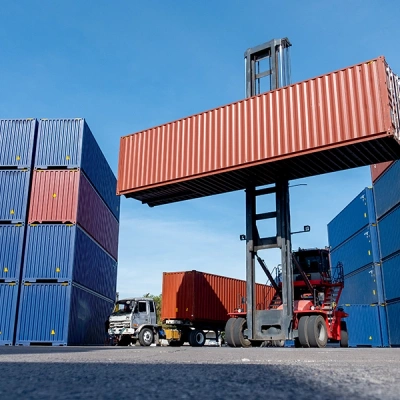The trends in moving services reflect broader shifts in consumer behaviour, particularly regarding how people shop and what they prioritise. Exploring these patterns provides insight into the evolving landscape of the moving industry.
Online Shopping Behaviour
Digital shopping is not only prevalent but continues to grow, with an increasing number of consumers opting to make their purchases online. This trend extends to the moving services industry, where customers now expect to find, compare, and book services through digital platforms. According to McKinsey, consumer intent to shop online, especially for essential categories, is expected to see a growth exceeding 35 percent. This shift is significant for moving services, as it highlights the importance of having a strong online presence and convenient booking systems.
The projected growth in online retail purchases showcases the need for moving services to adapt to this digital trend:
Year Percentage of Retail Purchases Online
2024 20.1%
2027 23%
Data sourced from Forbes.
Additionally, with mobile commerce sales anticipated to constitute 62% of all retail sales by 2027, moving service providers must optimize their online shopping experiences for mobile users. This could involve developing user-friendly mobile applications or ensuring that websites are mobile-responsive.
Consumer Shopping Preferences
The preferences of consumers are also evolving. Millennials and high-income earners are spearheading the shift to online shopping, not just for essential items but also for non-essential ones. This demographic is crucial for the moving services industry, as they are often more mobile and likely to require moving services.
In the US, there is a growing focus on essentials, with approximately 40 percent of consumers reducing general spending and continuing to cut back on non-essential expenditures. This reflects a significant concern about the economy's state and suggests that moving services may need to emphasise the value and cost-effectiveness of their offerings (McKinsey).
Moving companies should consider these shifts in shopping preferences and adapt their marketing strategies, service packages, and pricing models accordingly. As part of staying abreast of these, companies can explore offering bundled services or flexible pricing tiers to cater to the varied needs and financial situations of their customers.
Understanding these trends is key to developing strategies that align with customer expectations and behaviours, ultimately helping moving service providers to remain competitive in a rapidly changing market. For more information on the latest trends and hiring the best talent, Alchemy’s dedicated Relocation Services recruitment team can help.
Impact of Technology
The moving industry has undergone significant changes due to the rapid adoption of technology. Digital tools and software are reshaping how moving services operate, providing new opportunities for efficiency and customer engagement.
Digital Transformation in Moving Industry
Technology has become a pivotal element in modernizing the moving industry, with companies leveraging digital solutions to meet the changing preferences of consumers. According to Movers Development, the industry has seen a shift towards virtual consultations, digitalised operations, and sustainable practices as part of its transformation in 2023.
Transformation Area Impact
Virtual Consultations Increased convenience and accessibility for customers
Digitalized Operations Streamlined processes and improved efficiency
Sustainable Practices Enhanced company image and customer satisfaction
This digital shift enables moving companies to cater to a tech-savvy clientele, offering enhanced services that align with the expectation for quick, transparent, and seamless interactions. As a result, companies that embrace these are more likely to thrive in an increasingly competitive market.
Adoption of Moving Company Software
Moving company software has emerged as a game-changer in the industry, providing a suite of tools designed to optimize operations. This specialized software aids movers in planning and scheduling moves, managing staff, generating estimates, and interacting with customers (G2).
The software addresses key challenges faced by moving businesses, offering various features:
Feature Benefit
Customer Relationship Management (CRM) Improved client relations and retention
Estimation and Quoting Accurate and quick service proposals
GPS Tracking Real-time logistical oversight
Communication Tools Enhanced transparency and customer trust
Moving companies that implement these tools can differentiate themselves by offering faster responses, transparent processes, and superior services, thereby gaining a competitive edge. G2's dedicated moving company software category assists businesses in exploring and comparing software options that consolidate all essential business functions into one platform. This consolidation saves time, improves customer satisfaction, and ultimately provides a significant competitive advantage by aligning with the latest.





